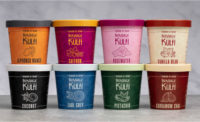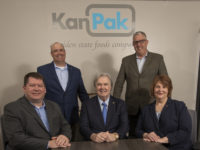Growing momentum in shelf-safe dairy
More dairies are seeking product innovation by engaging contract manufacturers with expertise in aseptic production.

In the past year, I have heard the same question repeatedly — how can dairy brands be truly innovative?
What I was hearing at numerous industry events was a call for pushing brand boundaries. I was always pleased to join in on these discussions and offer a suggestion — innovate through contract manufacturing. Brands can quickly and effectively expand their product portfolios and deepen their relevance to consumers by partnering with a like-minded contract manufacturer.
For dairy brands, looking for a contract manufacturer, also called a co-packer, with aseptic capabilities can be particularly fruitful. As discussed here before, the North American shelf-safe dairy market holds rich potential. This momentum echoes what occurred earlier with the move to extended-shelf-life (ESL) products, through advancements in technology. The industry chatter I have heard and the inbound requests I’ve seen validate the opportunity that exists for large, established dairy brands, as well as fledgling companies.
Compounding this demand is the all-important Millennial consumer, and his ever-present need for more personalized dairy products: According to Mintel’s Dairy 2016 Report, more than half of surveyed millennials say they drink more than five types of dairy milk. That’s a lot of milk! Choosing to create a shelf-safe dairy product removes a number of logistical challenges that fresh dairy presents. Plus, the opportunity for dairies to distribute across a state, a country or even the world becomes possible with shelf-safe products.
These forces in the dairy industry have made it advantageous to be a contract manufacturer with aseptic capabilities. There are many types of co-packers for dairies to choose from. Some may specialize in dairy, while others may do a little bit of everything across the food and beverage industry. Some may have years of technical expertise in a variety of processes, while others may not have that level of experience, but instead offer to share the burden of go-to-market costs and enter more of a business partnership.
For companies faced with choosing the right co-packer to help bring their innovations to market, it is important to look at three key areas:
1. Vision and values alignment: First and foremost, a potential contract manufacturer has to be aligned with its clients’ vision for its product line and values as a food and beverage brand. Ask specific questions about a contract manufacturer’s business — how does it balance flexibility with cost effectiveness? How has it handled fluctuations in market supply and demand with current clients? What is its outlook on the shelf-safe food and beverage market, and how does this perspective shape its technical investments? Answers to these questions and others like them will help paint a clearer picture of a co-packer’s values and vision, and how these manifest in its decision making.
2. Market expertise and certifications: Depending on what a contract manufacturer makes, it will have different industry certifications. These can be markers of a co-packer’s commitment to quality. Another is its client list — does it make products for well-established consumer packaged goods companies?
Along with a client list, companies can also examine co-packers’ market expertise in high-growth areas such as the millennial market. A good contract manufacturer should have experience with making products that align with the trends they’ve set, from clean labels to sustainable packaging.
Other areas of opportunity we’ve noticed are milks formulated especially for toddlers transitioning from infant formula to cow’s milk, and milk-based beverages catering to older millennial and Gen X women. Products for this audience have been released in Portugal, Spain and other European countries, and have been well received.
3. Short and long-term relationship potential: Over the last eight to 10 years, I’ve noticed that at some point, many companies that originally chose a smaller contract manufacturer eventually sign on with a larger entity as their volume grows. It’s inevitable when the smaller company does not have the capacity to keep up with demand — a good problem for a dairy brand to have, of course.
However, these more niche co-packers can be great for launches, so during the “courtship” phase, it’s well worth it to ask about the potential for both businesses to grow together. This can be the basis of a true, lasting partnership, not merely a transactional one.
It’s an exciting time to be an innovator in dairy. Aseptic technology makes it possible to reach beyond local markets and offer shelf-safe products to more consumers. The products we’re seeing in development show the amazing range of potential in the industry, and just how much more space people will gladly make in their shopping carts for dairy products that are valuable to them.
Looking for a reprint of this article?
From high-res PDFs to custom plaques, order your copy today!




